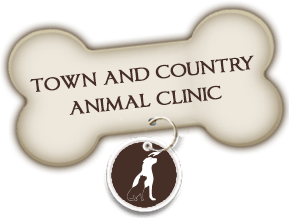WARM WEATHER DANGERS We all get excited as we get closer to spring and the warm weather is beginning to shine down on us. This means spending more time outside with our families, friends and furry companions. Our pets seem to enjoy the warm weather just as much as we do and as this time approaches we would like to take a moment to talk about the safety of our pets during the warmer months. … Read More
-
-
Don’t Bug Me! Fleas, Ticks and Heartworm!
DON’T BUG ME!! Fleas, Ticks and Heartworm! With the warm weather finally upon us, it’s time to take a moment to discuss the little pests that are associated with this lovely warmer temperatures. With this excitement it brings the dreaded pests, especially for our pets, ticks, fleas, mosquitoes and heartworm. TICKS: Ticks begin to emerge from their hibernation when the weather starts to become warmer, typically we see two major “tick blooms”, one in early … Read More
-
“Life With Diabetes Can Be Sweet” Part I – What Is Diabetes
If you have just discovered your furry family member now has diabetes, you are not alone. 1 in 500 dogs and cats develop diabetes. It occurs most often in middle aged to elderly pets. With insulin therapy, diet and exercise you can successfully manage your pet’s diabetes. What is diabetes? During digestion, food is broken down into components that are used by the body. Carbohydrates (starches) are converted into sugars. Glucose is the most important … Read More
-
Recognizing Signs of Heart Disease
Heart disease can affect any breed of dog or cat. Early diagnosis and treatment can be critical to your pet’s quality of life and life expectancy. Here is a checklist to help determine if your pet is displaying symptoms of heart disease. Breed Predisposition (Dogs): ___ Boxer ___ Cavalier King Charles Spaniel ___ Miniature Poodle ___ Chihuahua ___ Doberman Pinscher ___ Scottish Deerhound ___ Dachshund ___ Great Dane ___ Whippet ___ Pekinese … Read More
-
Senior Care Checklist
As your pet ages, behavioural changes or signs of deterioration can often occur. Answering some simple questions can help identify any age related issues early on. This survey will help us assess issues that require immediate medical attention or monitoring at home. Senior pet screening is recommended for all patients 7 years of age and older. Feel free to print this blog as a reference for your pet’s next visit. Have you noticed any … Read More
-
Recognizing Pain in Your Pet
Since your furry family member cannot verbalize what he/she is feeling, the following checklist may help determine if your pet is experiencing pain. These questions may be asked by your veterinary staff in order to establish a complete history on your pet. Feel free to print this blog as a reference for your pet’s next visit. Check all that apply Abnormal Posture: ___ Prefers lying to sitting or standing ___ Sitting or resting in abnormal … Read More
-
What Is Making My Pet So Itchy
There are many reasons that may cause your pet to become itchy. The following are signs and symptoms you can monitor to help determine why your pet may be itching. These may be questions asked by your veterinary staff in order to establish a complete history on your pet. Feel free to print this blog as a reference for your next examination. 1. Presenting Symptoms: please check any that apply. ___ Hair loss ___ Odour/Smell … Read More
-
How To Prepare Your Pet For A Disaster
Disasters can be a difficult time for both pets and people alike. To ensure you are keeping your pet safe, the following are some tips to help you prepare for disaster: Before the event occurs, find out which evacuation shelters allow pets: It is common for people to be turned away at relief shelters because some facilities do not accommodate pets. If there is the possibility of a disaster occurring in your area, call your … Read More
-
Barking in Dogs
There are numerous reasons why a dog will bark. Therefore, it can be a difficult behaviour to modify. The following are reasons why dogs bark: Inherited behaviour of all dogs Learned behaviour: Dogs will bark in order to get something. When that behaviour is rewarded dogs will continue this behaviour (ex: when your dog barks at the mailman, then the mailman leaves) Territorial defense: Dogs will bark when their territory is threatened. This is an inherited behaviour and may … Read More
-
Thunderstorm / Fireworks Anxiety
Animals have a natural instinct to seek shelter when exposed to loud noises such as fireworks or thunderstorms. During their attempt to escape, your pet may damage property, injure themselves or any person near them in an attempt to hide. For this reason we DO NOT RECOMMEND trying to hold your pet back or prevent them from hiding as this may cause injury to you. In order to deal with thunderstorm and firework anxiety it … Read More






